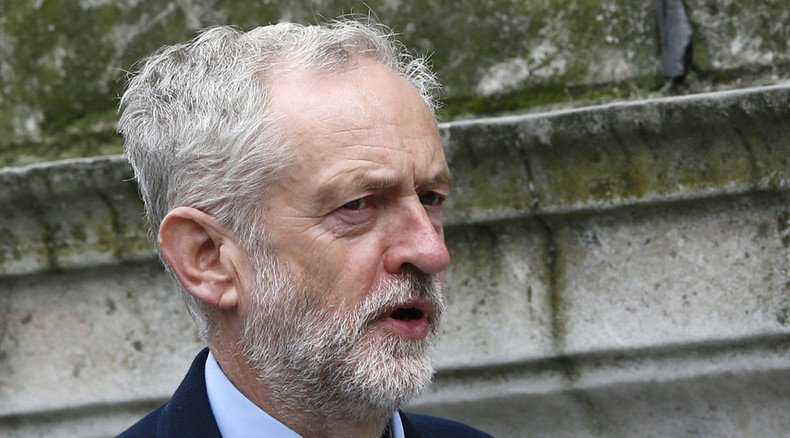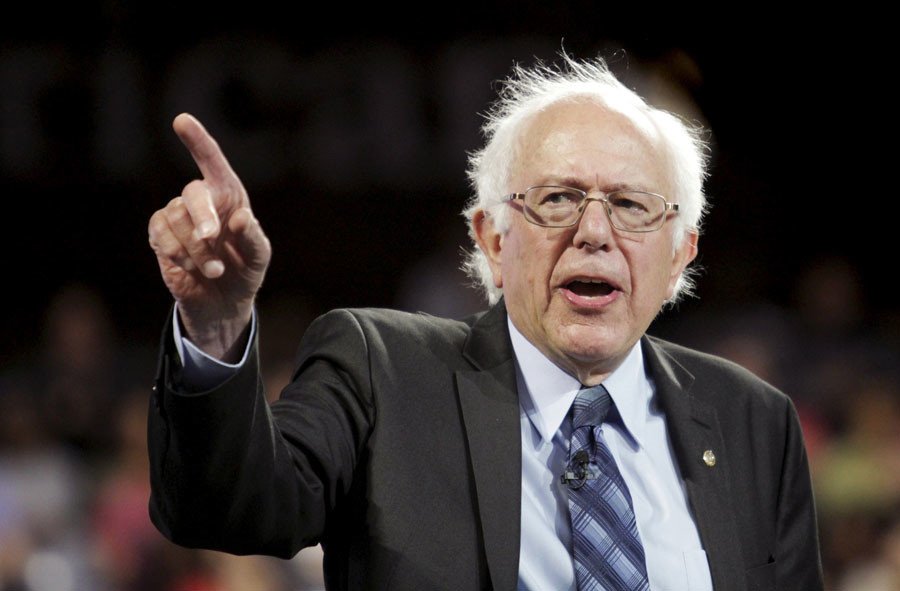Corbyn versus Sanders: 'Two different political animals’

There is not much in common between British politician Jeremy Corbyn and American Bernie Sanders, said Chris Hedges, author and activist. While Corbyn has spent 30 years fighting the establishment, Sanders never confronted US imperialism, he added.
RT: Why are politicians like Jeremy Corbyn and Bernie Sanders gaining more and more popularity? How much do their policies have in common?
Chris Hedges: Not a lot. [Jeremy] Corbyn is the real thing; Bernie Sanders certainly speaks in a populist rhetoric, but he is an unofficial member, and has been for a long time of the Democratic establishment; he sits with the Democratic caucus; he doesn’t not confront US militarism, imperialism; unlike Corbyn, he has not stood up for the rights of Palestinians. Corbyn has spent 30 years fighting the establishment - in particular the rise of new Labour under Gordon Brown and Tony Blair; he has been a pariah within his own party.
Howard Dean said the other day that Bernie Sanders votes 98 percent of the time with the Democratic Party. You can’t say that about Corbyn. Corbyn calls for the renationalization of the post office, the rail roads, the nationalization of energy sectors; he wants the Bank of England to pump billions of dollars into the economy to rebuild infrastructure, housing; he has called for withdrawal from NATO; he wants to end Britain’s nuclear armaments program, Trident; I mean, this guy is serious. These are positions that Sanders has refused to take and wouldn’t take. So they are completely different animals.
RT: The EU's most notable left-wing parties have been jubilant over Corbyn's victory. Why is this so important for them?
CH: Well, because it is part of this popular revolt against neo-liberalism, austerity, corporate domination of our political and our cultural life, and of course it caught everyone by surprise. Corbyn was a 200-1 outsider, but they just rose up. I think it’s tapped into a kind of revulsion that’s global, that Podemos certainly tapped into, Syriza tapped into in Greece with the neoliberal order. And Corbyn represents it in a way that Bernie Sanders really doesn’t.
RT: What message does this Labour Party election in the UK send to the rest of Europe?
CH: This sends a message essentially to the international banking community that says that their ability to impose conditions that cause suffering - especially among working men and women - is one that larger and larger segments of population will not tolerate. Corbyn has even raised the possibility of withdrawing from the EU precisely because of the EU’s treatment of the Greek people. He pointed out that all of this money is not going to the Greeks - it is going to the international banking system.
I think he is a kind of an example of this surge among the grassroots that’s rising up to defy the neo-liberal order and in particular the international banking system that is strangling countries. Whole parts of Britain are in really rough shape - places like Birmingham; Greece is being propelled virtually into a third world country; Ireland is not in good shape; Portugal; Italy. He is an example of that kind of brushfire that’s rising up in terms of revolt.

RT: David Cameron seems genuinely concerned about Corbyn's victory, considering it to be a threat to British citizens. Why is the new opposition leader getting a reaction like this?
CH: They are terrified, and what they will do is demonize him and play, as Cameron just did, on the notion of fear and call the Labour party under Corbyn a national security menace or threat. And that is what they’ll do. Not only will Corbyn be attacked by the neoliberal establishment, but he will be attacked by the neoliberals within his own party. He is already being attacked by figures like Blair and others. He has had large-scale defections; people will not sit on his shadow cabinet.
So what we will see is what we saw in the US in 1972 when the last real insurgent candidate George McGovern became a democratic nominee: the democratic establishment turned on McGovern to destroy his candidacy along with the rest of the establishment. And then they rewrote the rules so that there would never be another insurgent candidate. We will see the same kinds of attacks now carried out on Corbyn, because he represents a popular challenge to a system that enriches a tiny oligarchical elite at the expense of the many.
RT: Left-wing movements have been gaining momentum in recent years both in the EU and now in the United States. Why do you think public opinion has been shifting towards support for the left?
CH: Because people have realized that all the promises of the neoliberal order are a lie. It has not benefitted the working class; in fact it has impoverished the working class; it has decimated the middle class; it has allowed money to be funneled upwards in the largest transference of wealth perhaps in human history; it has brought with it an erosion of civil liberties, an assault on democracy, and in the name of austerity a destruction of basic services from libraries to schools to roads, which are either abandoned or closed, shut down, and people are trapped - they can’t get out. The chronic underemployment or unemployment is unassailable because of this, coupled in the US with the largest system of mass incarceration in the world.
So, all of the promises of neoliberalism have been exposed for what they are. And that is why, for instance, in the US you are seeing harsher and harsher forms of control, more naked forms of control. People don’t believe the myth anymore: militarized police; we live in the most sophisticated security and surveillance apparatus in human history; we have two citizens a day gunned down in the streets of American cities. We are seeing a shift from softer forms of control to much harsher forms of control as these corporate entities and the neoliberal order employ more direct forms of oppression in order to retain power, and people get it.
LISTEN MORE:
The statements, views and opinions expressed in this column are solely those of the author and do not necessarily represent those of RT.












